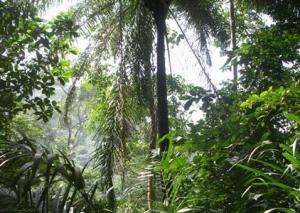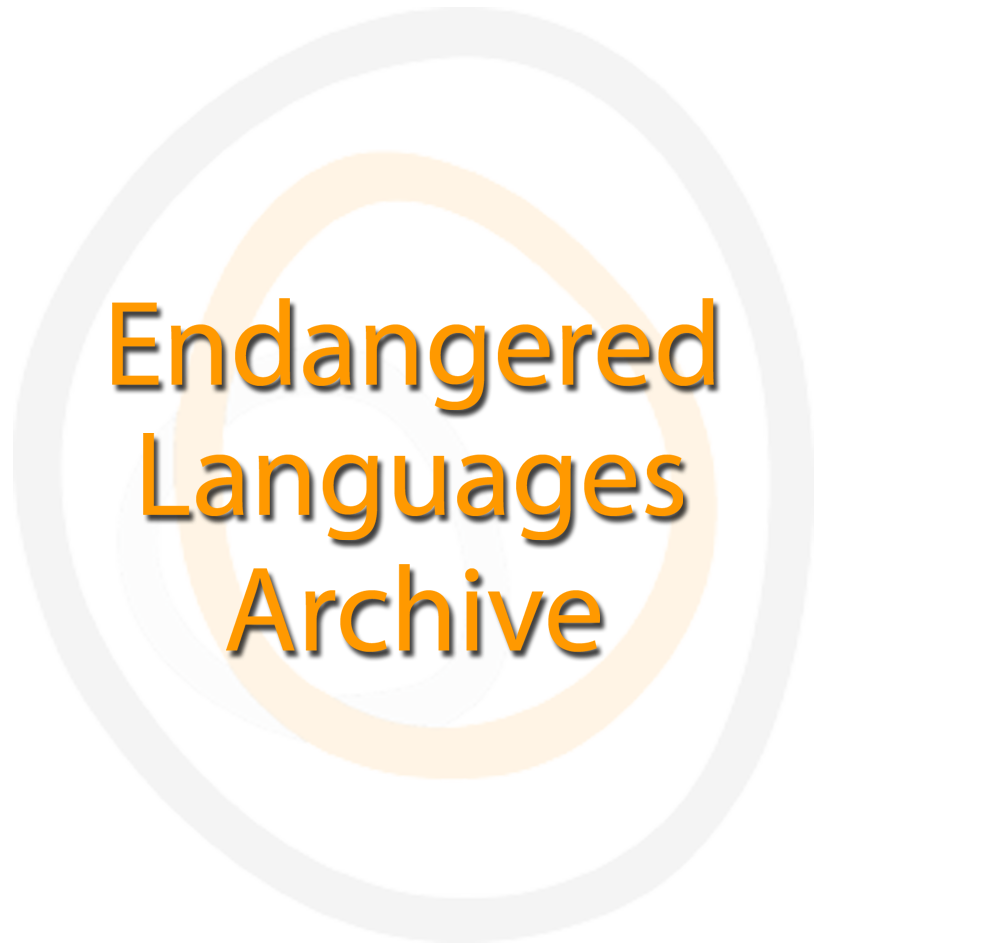Ikpána (Logba) plants: names and uses

Landing page image for the collection “Ikpána (Logba) plants: names and uses”. Click on image to access collection.
| Language | Ikpána, Logba (ISO639-3:lgq) |
| Depositor | Cedar Green |
| Affiliation | School of Oriental and African Studies |
| Location | Ghana |
| Collection ID | 0207 |
| Grant ID | |
| Funding Body | |
| Collection Status | Collection online |
| Landing Page Handle | http://hdl.handle.net/2196/1cc0c577-bdaa-4ace-978a-6a844356584f |
Summary of the collection
This is a collection of video recordings of speakers of Ikpána describing the names and usages of various plants found in the Logba Traditional Area, Ghana. All recordings were made during twelve days of fieldwork in November 2009 as part of an Independent Study Project during Lydia Green’s undergraduate semester abroad.
The work was supervised by Dr. Kofi Dorvlo and Prof. Mary Esther Kropp Dakubu, both at the University of Ghana, Legon.
The academic outputs of the documentation were a 53-page preliminary analysis of the linguistic properties of plant names in Ikpána, which also investigates lexical borrowing in the botanical domain, and the 49-page appendix to the linguistic analysis listing the plants’ names, their usages, and information linking each entry to the video recordings. This information is under higher access restrictions in keeping with the community’s wishes to ensure that their medicinal knowledge is not accessed without their permission.
Group represented
Akpanawò (Logba)
Language information
Ikpána is a Kwa language of the Niger-Congo language family spoken by fewer than 10,000 people in the mountains of Ghana’s Volta Region. It is one of the fourteen languages sometimes referred to as the Ghana-Togo Mountain (GTM) languages. The language is still being learned by children but is under pressure from dominant languages, such as Ewe, which is the regional lingua franca, and English, which is the official language of the country.
The term Logba is used commonly to refer to the language, people, and the area where the language is spoken. However, the speakers of the language refer to the language as Ikpána, the people (in the plural) as Akpanawò, and the area as the Logba Traditional Area, with individual names for each of the towns and villages.
A Grammar of Logba (Ikpana), a grammatical description of the language, was published by Dr. Kofi Dorvlo in 2008. He is currently working on a trilingual Ikpána-English-Ewe dictionary. Other previous work on the language consists of a sketch grammar done in German by Westermann from 1903 and several short papers by Dr. Dorvlo.
Collection contents
- Four video recordings of speakers of Ikpána describing the names and usages of various plants found in the Logba Traditional Area, Ghana.
- The final essay written for the Independent Study Project course. This is a preliminary linguistic analysis of plant names in Ikpána
- The appendix to the essay, which contains the Ikpána names for the plants, any information about the linguistic properties of the name, a rough English translation of its uses, the name of the speaker who provided the information and the the tape number with the reference time of the video recording.
- Digital scans of handwritten fieldnotes, including the ‘plant name committee list’, which is a list of plant names and annotations which came out of a group discussion about the meaning, origin, and alternate names of each plant name recorded, and the ‘plant names and uses’ document, which is the handwritten, rough English translation of each of the video recordings.
- Photographs from fieldwork, including photos of the surrounding forest, the town of Logba Alakpeti as seen from above, and several of the people who were involved in the project.
- A metadata spreadsheet listing information for every file contained in this deposit as well as information about individual participants, such as their year and place of birth, home town, profession, and languages spoken. Because this contains personal information it is also under stricter access conditions. All of the non-personal metadata is already associated with the relevant files in this deposit.
Acknowledgement and citation
When citing the final essay or the appendix, please use a form of the following recommended citation:
Green, Lydia 2009. A Preliminary Linguistic Analysis of Plant Names in Ikpána (Logba), an Endangered Ghana Togo Mountain Language. Independent Study Project (ISP) Collection. Paper 751. http://hdl.handle.net/2196/00-0000-0000-0002-2EB0-C. Accessed on [insert date here].
To refer to any data from the collection, please cite as follows:
Green, Cedar 2009. A Preliminary Linguistic Analysis of Plant Names in Ikpána (Logba), an Endangered Ghana Togo Mountain Language. Endangered Languages Archive. Handle: http://hdl.handle.net/2196/00-0000-0000-0002-2EB0-C/a>. Accessed on [insert date here].
Access restrictions
Due to concerns of biopiracy, many of the materials have high access restrictions. In order to request access to such materials, please contact both the depositor (Lydia Green) and the delegate (Unansanango Togbega Dabra VI) for permission.


